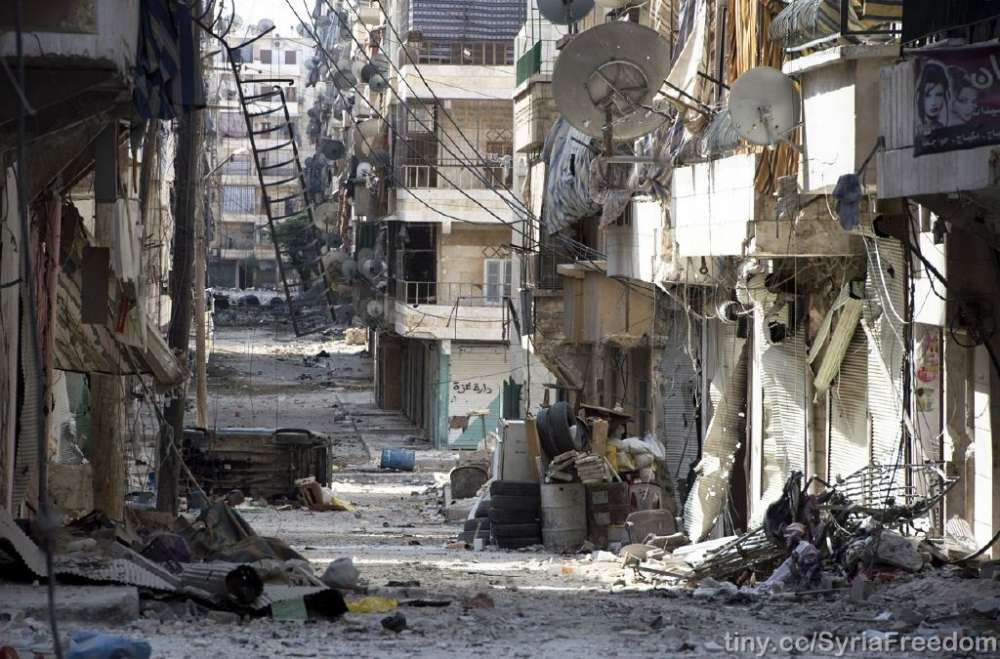Shifting From Crisis Management to Crisis Prevention

These days, there is no lack of international crises. During the new German government’s first couple of days in office, the Bundestag has already discussed six mandates for Germany’s armed forces. It did so with much controversy and media attention.
But what about those crises that have not yet come to pass? What about Algeria, where 81-year-old president Bouteflika could drop dead at any point, and civil war is a real threat? What about Tanzania, where growing political repression might indicate an impending crisis? What about the Balkans, where old conflicts might rear their heads? You have no idea? Fair enough, neither do most of those involved in foreign policy debates, including those within the Berlin policy bubble.
Rhetorically, all German political parties have declared their support for crisis prevention: for foresight, mediation, and preventive diplomacy. And there is more money forthcoming: in its coalition agreement, the new government announced that for every additional euro spent on defense (on top of the increases agreed upon last year) one euro must be spent on development and crisis prevention. However, more money will not change the fact that, far too often, we only deal with crises when it’s too late.
This is not a new problem. Take one example: In August 1993, eight months before the Rwandan genocide, three German members of parliament travelled to Rwanda. In meeting with the foreign and defense ministries in Bonn afterwards, they conveyed their local interlocutors’ urgent request for German diplomatic and financial support for the deployment of 4,000 UN blue-helmets. The German government declined, as did many of its international partners: way too expensive. A year later, Germany had spent multiple times the requested sum in humanitarian aid to Rwanda – several hundred million Marks. And more than 800,000 people were dead.
We have been following the same pattern ever since. Media reporting focuses on the big crises. Public pressure follows media attention. Politicians follow public pressure. Those politicians who act early rarely receive praise: success means that nothing happened and no one has seen it. Real crisis prevention would mean changing this dynamic and directing both attention and resources to places where it’s not yet too late. This would give instruments such as diplomatic pressure, support for local civil society and peace operations enough time to have an impact.
Now would be the time to insist on more economic and political reforms in Algeria, which could reduce the risk of another civil war on Europe’s doorstep. Now would be the time to strengthen civil society in Tanzania. Now would be the time to strengthen the EU’s diplomatic efforts in the Balkans.
So what’s needed for these things to happen? First, we need media organizations – especially public broadcasters – that commit to reporting on potential crises or successfully averted catastrophes. Second, we need civil society organizations that run early and forceful campaigns warning about countries at risk. And, finally, we need political and bureaucratic reforms.
A brief glance at the previous US administration shows that such reforms are possible. After years of pressure from NGOs and church groups, the Obama administration set up an atrocities-prevention board which enables political action long before a potential outbreak of violence. Two years before the crisis in Burundi in 2015, for example, the US government foresaw the risk of violent conflict. They then invested in specific programs to reduce the risk of violence, such as employment opportunities for young people who might otherwise have joined militia groups. Did this help? It’s always hard to say in retrospect. The crisis occurred nevertheless. But it has not yet escalated to the extent that experts had feared it would.
Similar reforms are urgently needed in Germany. We need a federal budget that allocates resources that can only be spent on crisis prevention, not just on crisis management. We need better early-warning mechanisms, more coordination between the German ministries and EU member states, more pressure from parliament and civil society and, last but not least, media reporting that emphasizes the importance of crisis prevention. Sounds dry? Let’s make it exciting! A recent study by the World Bank and the UN shows that more crisis prevention would not only save countless lives, but would save the international community between five and 70 billion US-dollars each year. Prevention pays off. But we have to seriously push for it to happen.
…
A German version of this commentary first appeared in the German daily Frankfurter Rundschau on March 21, 2018.







